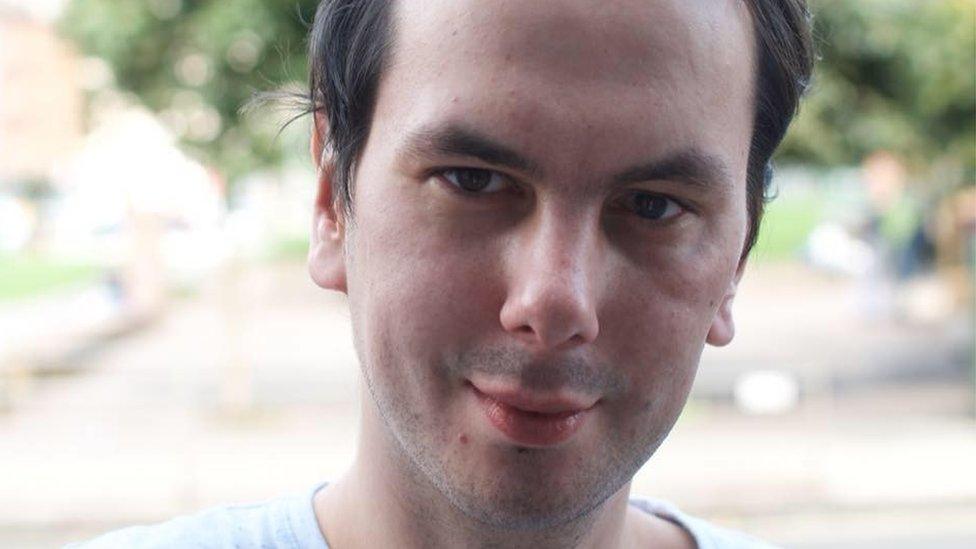Coronavirus: Parents of disabled children 'cut off and ignored'
- Published
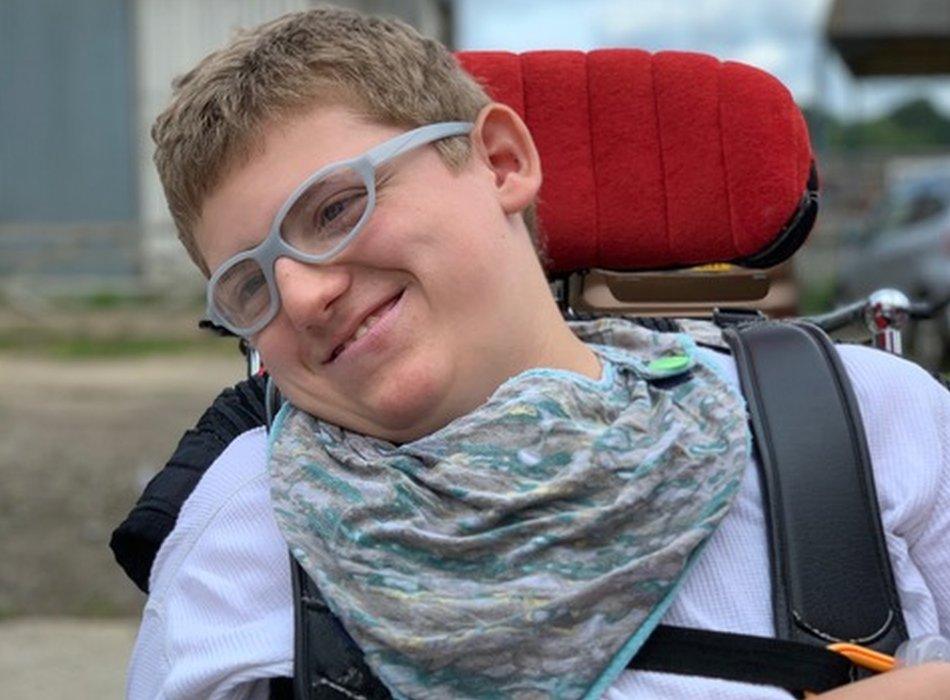
Sixteen-year-old Fergus is severely disabled
The coronavirus lockdown has placed additional pressure on many families. But what happens if you lose your work, your support network, and have a disabled child to care for?
"You know what? It's needs must," says Gail Bedding, from near Grayshott in Hampshire. "We needed to pay the bills, we needed to pay the mortgage - and suddenly there's no money coming in."
Gail's work has stopped - but there's another bigger factor dominating her life. She's the mother of a severely disabled 16-year-old son, Fergus, who is completely dependent on the care of his family.
He is in a wheelchair, non-verbal and fed through a tube.
Gail's husband Dave also found himself without work. But with the country in lockdown, the family needed to find a way to look after Fergus.
"We had to go out and find jobs. Dave went out and got a delivery job with Sainsbury's. I got a job stacking shelves for Sainsbury's.
"I've got 18-year-old twins. They both went out to get jobs. One's working in a care home and one's working in a garage with a shop attached to it."
The family rallied around in a collective effort to make sure that, even in a time of isolation, Fergus was never alone.
"We have to work out who is home, so he's not left on his own. We have to make sure one of us is in the house with him. It's a real juggling act for us," says Gail.
"We all had to just get on with it," she says. When her children got back tired from a shift at work, they still had to help.
There isn't anything heroic about this, she says. No one is going to stand on a street and clap families like that. Instead, the feeling she describes is one of "guilt" that she can never do enough to help her son.
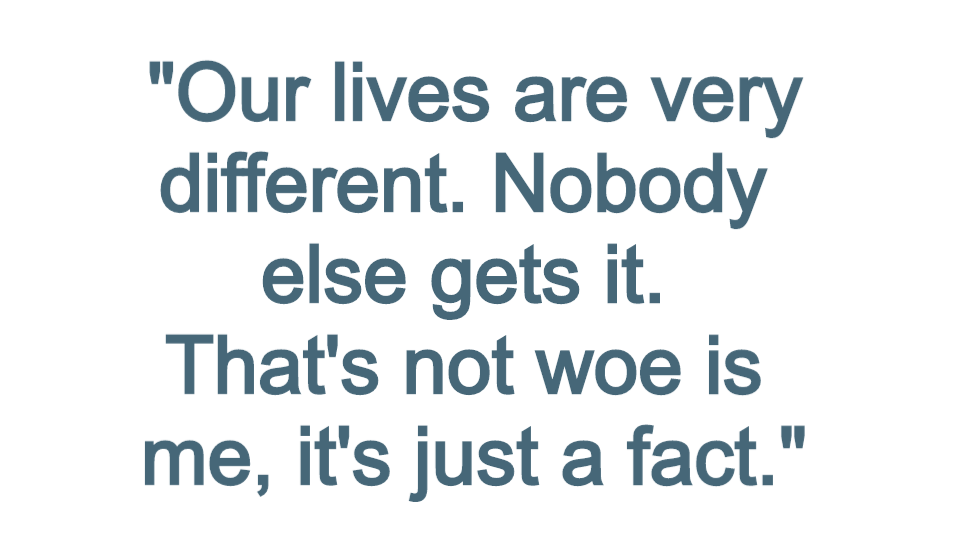
Gail says that for families with disabled children, the lockdown has made things even tougher. It's created an even more intense sense of being cut off and ignored.
With travel restricted, parents have not had any access to relations or friends who might usually share the load of caring.
There are worries about jobs and money - and working from home is not easy while caring for a child with disabilities.
Getting help from paid carers has been more difficult during the lockdown. Play clubs which might give some respite are not running and some schools are closed.
The fragile health of some young people with disabilities makes it even less likely that they can go outside. And some cooped-up children are showing much more challenging behaviour.
"Unless you have a disabled child, you will never understand how it affects your life - and then this is 10 times worse, because there is no let up, no let up whatsoever," she says.
"The doors are closed. Nobody sees our children going out now, because they're all shut behind closed doors. They're not allowed out, so many of them are vulnerable, they can go out even less than normal.
"Our lives are very different. Nobody else gets it. That's not woe is me, it's just a fact."
Gail says she's fortunate that Fergus can still go to school a few days a week - as it means the family can get a break from their exhausting routine.
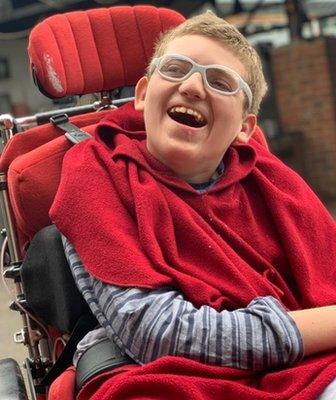
"It's a real relief. I know that sounds really awful. I love my son dearly, but when he's not here, it means he's being stimulated and looked after and doing something away from home," she says.
There is no glimpse of self-pity in any of this. She expects her work - training with families with disabled children - will pick up again, and so will her husband's business in reclaimed flooring.
But she really worries about the sense of confinement and that local charities might struggle to keep going. Her son goes to leisure activities run by Challengers, in Guildford, but she says such charities depend on fundraising, which has been badly hit.
"I don't know what's going to happen in the future, because a lot of the short breaks are charities and will be closed. Or they won't be able to offer the same services," says Gail.
"This social isolation we have now isn't going to stop, it's going to carry on and that fills me with absolute dread. To think we will have very little break in the future is pretty desperate, to be honest. I'm not sure I can cope."
'I love her deeply'
Caroline - not her real name - is another mother of a child with disabilities. She speaks of the crushing sense of isolation made worse during the lockdown.
Her 13-year-old daughter has "profound learning difficulties", cannot speak or do anything for herself, and has to have her nappies changed.
"Your child grows up and gets bigger, but their mental and emotional life does not travel alongside," she says, describing her daughter as being as vulnerable and demanding as a "baby or a toddler".
"I love her very deeply," says Caroline. But the pressures are emotionally as well as physically exhausting. She says for parents of disabled children there are extra constraints on top of those already placed on everyone else.
"We can't go out for the daily family exercise. My daughter refuses to walk far. She leans on me, messes around, pulls on me and it's infuriating. I can't take her far because I don't know if we will make it back."
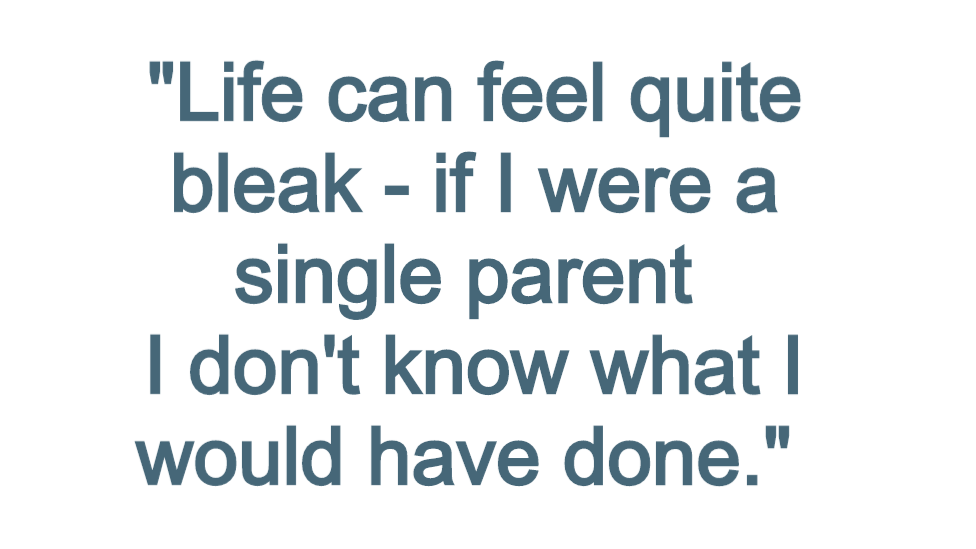
When they tried, her daughter had to go to the toilet, and they had to carry it back in a plastic bag.
"I am just trying to give you a glimpse into our life," she says - and it's one where being "lucky" meant having a spare nappy.
Caroline says she has become very dependent on a network of support services and the respite when her daughter is at school or a play group.
"Take all that away and life can feel quite bleak. If I were a single parent, living in a small flat, I don't know what I would have done."
It's a theme you hear from other parents of disabled children. There is a reliance on help and fears it will be swept away by the pandemic, or the economic storm that might follow.
Another mother of a child with severe disabilities spoke of a "never-ending pressure - and you know it's never going to go away".
She worries that children with learning disabilities who are missing therapy and the company of other children will "regress" even further.
"You can't understand. You don't know what it's like until it happens to you," she says.
Last week, the Department for Education in England announced £10m to provide extra assistance during the pandemic for parents of disabled children, aimed at families whose children were now "at home more than usual".
There is a great need for support says James Taylor, executive director of the disability charity, Scope. He says "many families of disabled children are telling us they feel forgotten amid the crisis".
"Parents are juggling working from home with childcare and home-schooling, often without the right equipment or resources," he says.
"Many have lost the respite care they usually get through relatives or other services," he says.
It's also a reminder, that when you go around a supermarket, whether it's the shoppers or the shelf-stackers, everyone has their own story.

A SIMPLE GUIDE: What are the symptoms?
RISK AT WORK: How exposed is your job?
HOW A VIRUS SPREADS: An explanation
RECOVERY: How long does it take to get better?
GLOBAL SPREAD: Tracking the pandemic

- Published1 May 2020
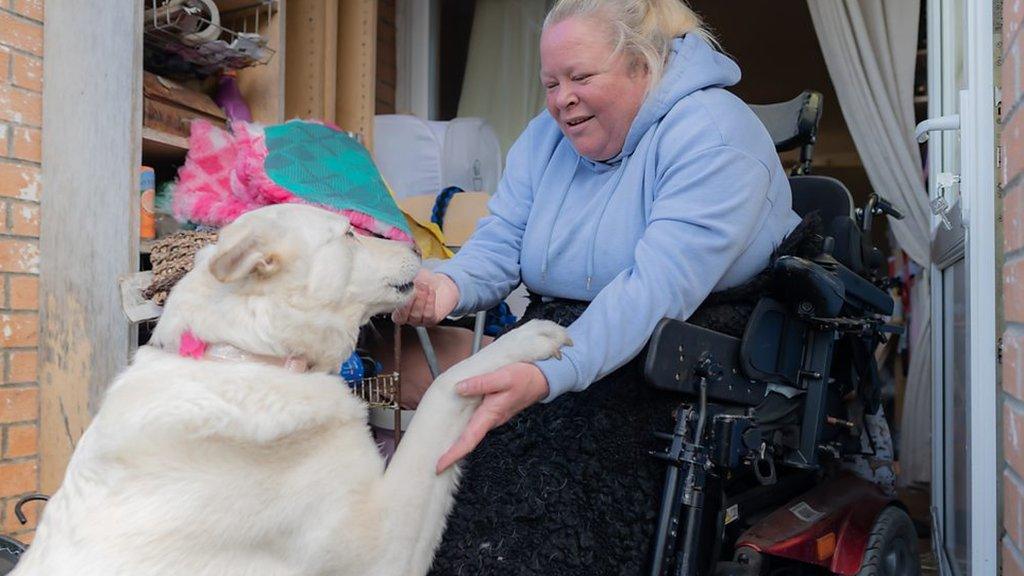
- Published28 April 2020
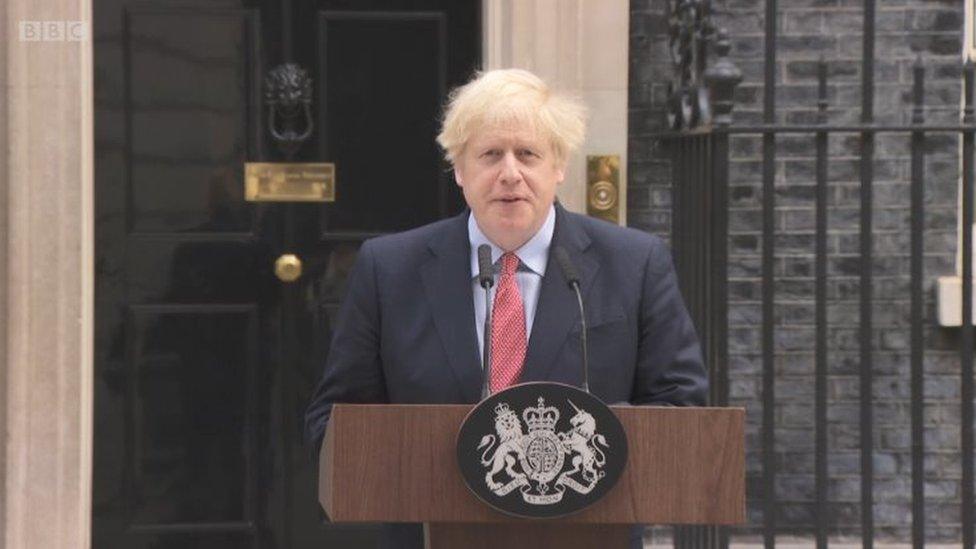
- Published19 April 2020
